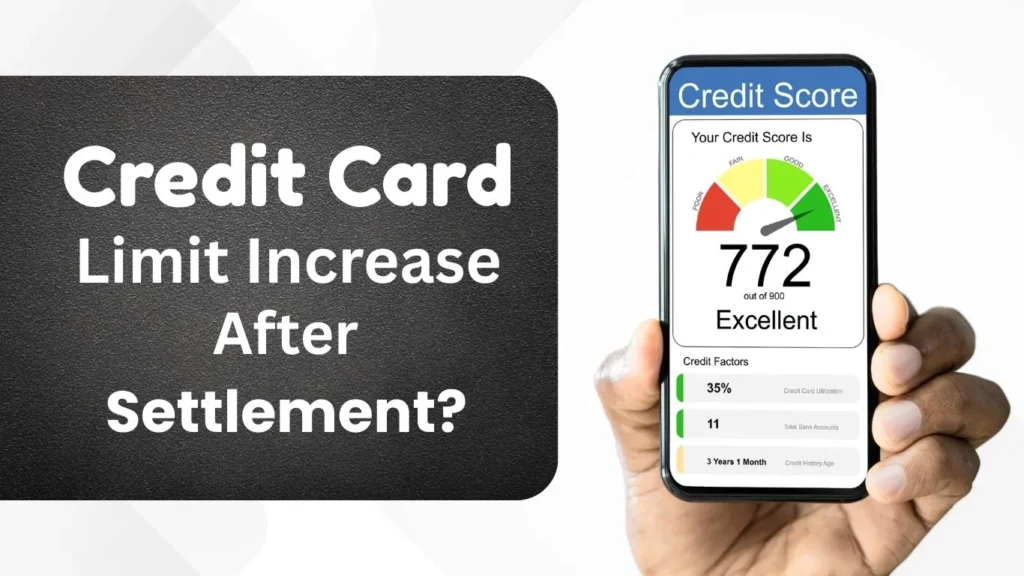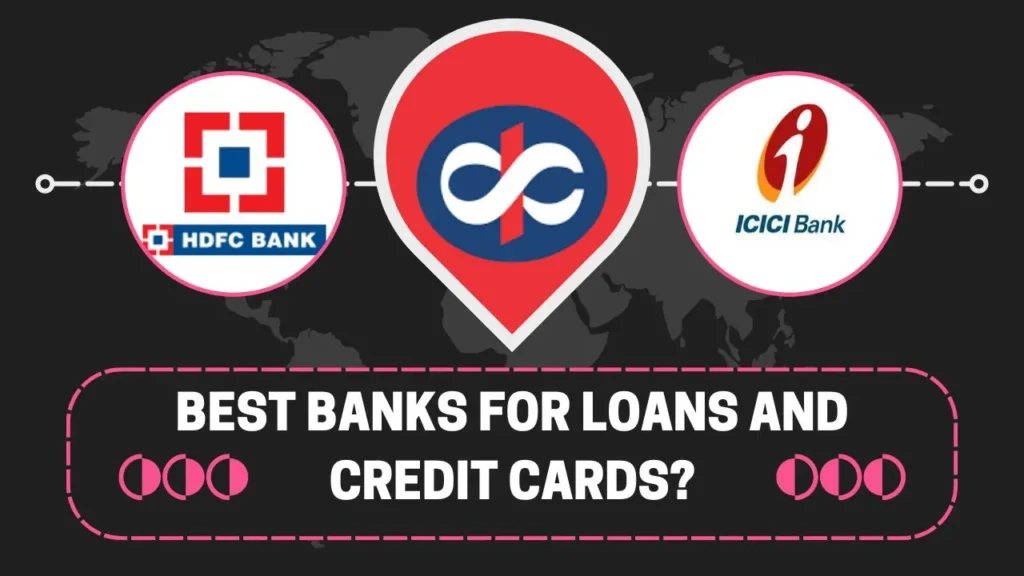





Once the credit card debt is paid, an increase in credit card limit is possible but not guaranteed. Debt settlement leaves an account with “settled” as opposed to “paid in full”, so lowering your credit score. Even though lenders consider this to be risky, they do take into consideration your credit use, income, and current pattern of payments. Make payments in time, keep credit use below 30%, and notify the provider of an increase in income to increase your chances. Six to twelve months after settling, being able to regain confidence helps. Some banks, such as Discover and Capital One, may consider granting an increase in limits. On the contrary, getting a new card may prove helpful even though it poses higher risks. After settling, you can increase your credit limit over time with good money habits.
Clearing credit card debt may relieve you of financial stresses, certainly in terms of repairing credit, but often leaves you with the question of what’s next. Often questioned is whether debt settlement makes an increase in credit limits possible. Even though paying debt may drop your credit score and temporarily weaken lender confidence, it does not shut the door on future opportunities. Although not always the case, many feel they are shut out from limit increases. With the right strategy—like altering your credit behaviour, paying down debt, and proving steady income—you can rebuild your record over time and quite possibly qualify for an increased credit limit.
Negotiating with a lender to pay less than what you owe is known as debt settlement. Although it could lighten your financial load, it usually has credit ramifications. Usually recorded as “settled,” rather than “paid in full,” settled accounts could momentarily reduce your credit score. This mark appears on your credit report for several years and may affect your capacity to obtain new credit or a larger credit limit.
Before granting you a limit increase, the majority of credit card companies review your entire credit report. If your account reflects a recent settlement, they may see it as a risk. That does not, however, necessarily mean you will be rejected. Each lender has its criteria. Some may be more concerned with your income, current payment habits, and debt burden at present.
Pay all of your present bills on time. Over time, even small on-time payments will serve to increase your credit profile. More crucial than quick fixes is consistency.
Use your credit below thirty per cent of your total credit limit. When you request a higher limit, this shows lenders that you have sound credit management.
Some credit card issuers will consider an increase in your credit limit if your income increases. Change your salary information on your credit card account if recently you got a raise or a new job.
Let your credit heal after the settlement with time. Six to twelve months of patience will enable your score to improve enough to make approval more likely.
True, but it may take some time. There are lenders who will still approve you for secured cards or low limit cards on settlement. As you rebuild your credit, you can qualify for higher limits and better terms in the future.
While it is not guaranteed, with patience, good financial discipline, and friendly communication with your lender you are able to receive a credit limit increase after settlement. Rebuild your credit profile gradually.
Re-establishing trust with credit card companies requires patience and planning after debt is settled. While debt settlement may have lowered your credit score, it does not indicate you are denied future credit opportunities. These five key steps will allow you to return to firm financial ground and increase credit card limit acceptance opportunities.
One of the key factors credit card companies consider in determining whether or not to increase a limit is on-time payments. Even a single late payment may reduce your chances. To ensure consistency, set reminders or automatic payments. A spotless payment record will reflect positively on your credit report eventually.
Your credit utilisation ratio indicates how much credit you are utilising out of the credit limit available to you. Attempt to use less than one-third of your entire credit available. If your credit limit is $1,500, for example, attempt to keep a debt below $500. This proves to lenders that you are not primarily relying on borrowed funds and are truly proficient in managing credit.
When considering limit increase requests, credit card companies sometimes consider your current salary. If your income has changed since your last application or settlement, note it. A better income indicates better repayment capacity, which would help you to justify your request for a larger limit.
You should wait at least several months before asking for additional credit immediately following a settlement. Allow your credit history to heal somewhat; then, focus on maintaining good money habits. This “cooling off” period will allow you to show proof of improved credit behaviour and make your request more acceptable.
If you don’t use your credit card too frequently, the company cannot have reason to raise your limit. Even extensive use with high balances may cause some concern. Use the card for recurring bills that you can pay off in full each month. Your case for a limit raise is supported by ongoing, judicious use.
Keeping regular contact with your credit card company, being patient, and establishing good credit habits will all serve to increase your credit card limit opportunities after settlement. Each billing cycle you manage serves to build your financial reputation steadily.
If you have just settled a debt, you may be considering whether or not it would be right to ask for a bigger limit from your credit card company. Even though there isn’t a set answer, knowing the typical credit card limit increase timeline and what indicators readiness will allow you to move at the right time.
Your credit score can get damaged in debt settlement. Lenders most often indicate the account as “settled,” rather than “paid in full,” which decreases your credit score. This impact does, however, eventually wear off, especially if you get into the habit of making timely payments and responsible use.
The majority of credit experts recommend waiting a minimum of six months to request a limit increase. This tells your issuer that you are managing your current account well and gives your credit report time to settle. If you’re also upping your income or paying down other debt, waiting longer will boost your chances.
You’re on the right track if you’ve made payments regularly on or before the due date since the settlement.
Keeping moderate credit card balances—preferably under 30% of your limit—demonstrates your independence from revolving credit.
Check your credit report before applying. You stand a better chance of being approved if your score has increased and no new bad points are appearing.
Credit card issuers often request your income. Your application can be bolstered with evidence of increased, steady income.
If you have recently missed payments, your credit score has not increased, or your debt remains high, do not request a limit increase. These signs suggest that you may need more time to rebuild lender confidence.
Applying is best done after you have shown a few months’ worth of good behaviour. This should come in the form of lowered balances, timely payments, and overall credit health improvement. Holding out until these indicators appear increases your likelihood of approval without hurting your credit score.
Your credit score is essential for achieving a higher credit card limit. Recognizing the direct connection between credit card limit increases and credit scores is crucial. Take action now to ensure you are approved for the higher credit limits you deserve.
Your credit score tells lenders about your ability to manage debt. The higher the score, the better you use credit and make payments on time, thus lowering your risk. The first thing the lender considers when you request a credit card limit increase is your score.
Have you recently been making payments on time? A good payment history on time improves your chances of approval.
This is your credit usage compared to your entire available credit. Lower usage means that you use less credit, which may help you to appear more responsible.
Your credit score can be harmed based on recent hard inquiries. Too many near each other could indicate a red flag—that you desperately need credit.
Lenders also consider your debt, accounts open, and recent changes to financial activity. Lenders prefer a balanced, steady credit profile.
If your goal is a higher limit, begin by focusing on building your credit score. Keep credit balances low, pay all payments promptly, and avoid too many credit card application requests. Small changes compounded can make a big difference.
Don’t be hasty to ask for a limit increase immediately upon initiating new debt or after settling. Allow yourself a period of record good use and see your credit score improve before asking for your limit to be raised.
By decreasing your credit usage, increasing your limit will be a plus for your score. But your score must already reflect good habits if you hope to receive that permission. Highlight maintaining ga ood credit score; this will cause you to be approved when you need additional credit.
If you recently had a debt settlement, you may be wondering which banks will be open to approving a credit card limit increase. Despite a settlement temporarily impacting your credit, most institutions do allow increases later, after you’ve regained financial stability.
Each bank handles post-settlement credit management differently. Some might be more forgiving than others if you have shown improvement in account management.
If the account is in superb standing and payments are made timely on recent statements, Bank of America might consider a credit limit increase even after a settlement.
Though they assess your account automatically in most instances, you may also inquire through online banking. Strong payment history and conservative balances add power to your argument.
Automatic reviews and accommodating stance towards consumers re-establishing credit are hallmarks well recognized of Capital One. You may be eligible if your account remained current and open after the settlement.
Repeated utilization of the card and minimal use of credit will benefit you. Their mobile application allows you to also initiate a review.
Discover reviews are based on income, payment history, and overall credit position. Recovery is possible though, and they may take longer after settlement.
Make on-time payments and, if possible, document an income increase. Discover very frequently grants requests every few months.
With post-settlement inquiries, Citi tends to play it safe. However, if you’ve rebuilt trust with regular use and on-time payments, an increase may be approved.
Citi likes applicants with improved credit scores and good credit activity for the past few months.
Wells Fargo reviews each case separately. You may have to wait longer after a settlement, but if your income and credit score indicate recovery, they may authorise an increase.
Responsible use of your card and reporting changes in income improve your chances during review.
While each bank takes a different path, confidence-building hinges primarily on stable payment conduct, modest credit use, and current financial information. Banks do make paths to increased limits available upon settlement, either in computerised reviews or handwritten pleas.
Repairing your credit is likely your second goal after your bills are in check. One key decision is whether to request a credit card limit increase or a new card. Both have advantages; however, your credit status, income, and spending habits will decide which of the two is ideal.
If your credit card account is in very good standing, asking for an increase in your limit might be a good idea. In some situations, it does not involve opening a new account or having a new inquiry added to your credit report.
Applying for a new card gives a fresh start and occasionally improved benefits. This path, meanwhile, mostly relies on your credit score and the recent nature of the settlement.
Timing and credit health are important in comparing a new card to a credit card limit increase. Typically, safer and quicker is requesting a limit increase if your income has settled and your current card is in good standing. It shows trust from your issuer and reduces use, so enhancing your credit score.
Getting a new card might assist, particularly if your credit has increased, should your existing card company deny a raise, or should you desire more favourable terms. Secured cards or beginner credit cards after settlement are excellent options.
Although both can be used to rebuild credit, an increase in a limit is generally less risky. It will boost your score if it is approved and does not open a new account. But a new, properly chosen card, used prudently, can also show lenders your creditworthiness again.
Even though an increase in credit limit after debt settlement is not guaranteed, with the right strategy and with time, it is possible. Creditors examine your history, usage, income, and creditworthiness overall. With time, good habits—timely payments, modest usage, and income updates—will see you repairing your credit. Your chances may further improve by waiting at least six months after settlement, making proper usage of your card, and staying in communication with your issuer. Whether opting for a new card or asking for an increase in your limit, it is consistency and prudent usage that are important. Rebuilding creditor trust would take time, but with discipline and effort, you can recover stability as well as seek prospects for credit.
Que: Can I get a credit card limit increase after settling a debt?
Ans: Indeed, that is feasible. You must exhibit limited credit use and on-time payments, two better credit behaviours.
Que: How long should I wait to get a credit limit rise?
Ans: Wait at least six months following debt settlement to give your credit time to heal.
Que: Will a settled account hurt my chances of getting more credit?
Ans: Your chances might initially be affected, but they will increase as your credit improves.
Que: Is it better to get a new card or ask for a limit increase?
Ans: If your present card is in excellent standing, asking for a limit rise is usually faster and safer.
Previous Post

Next Post
